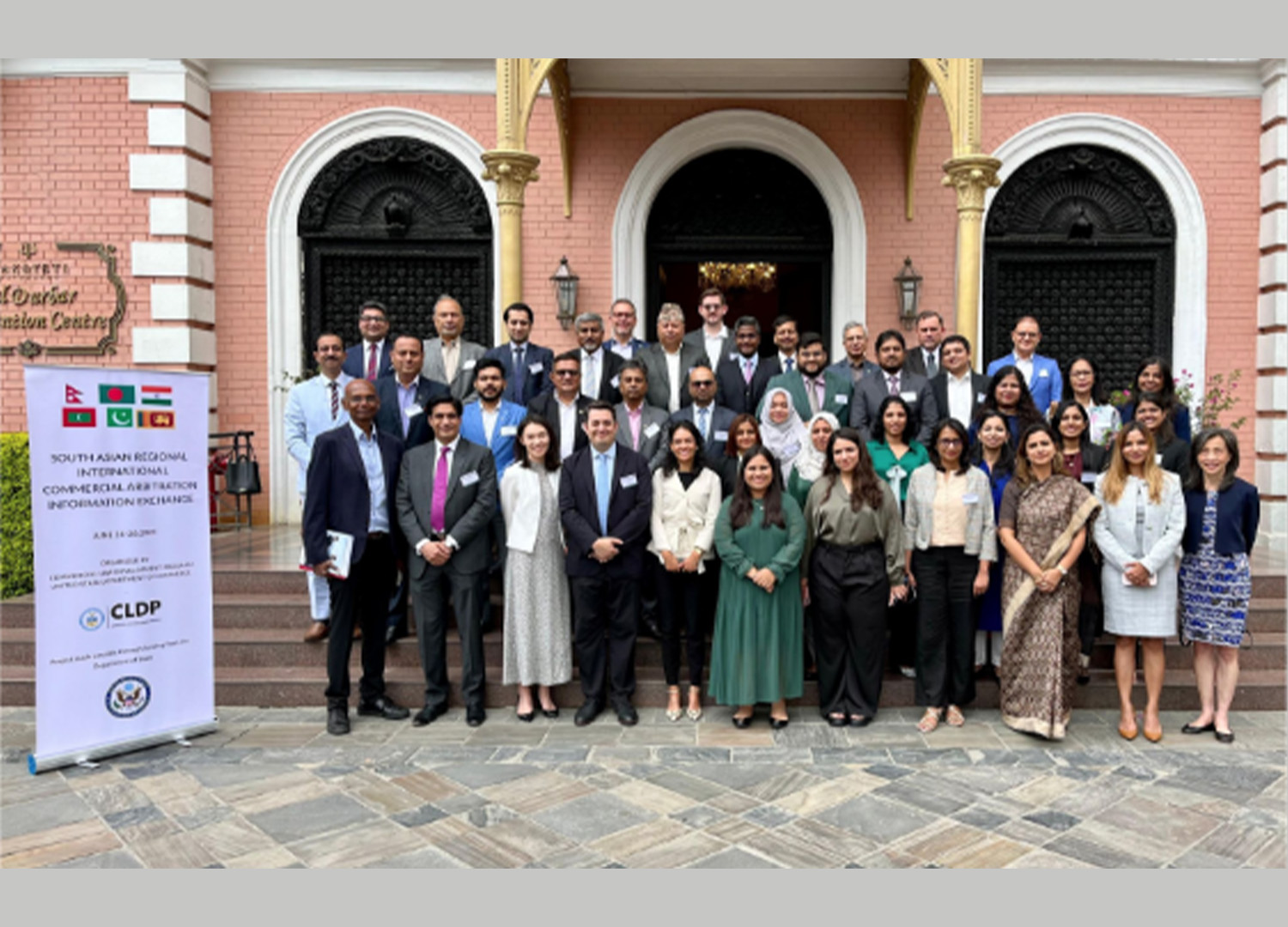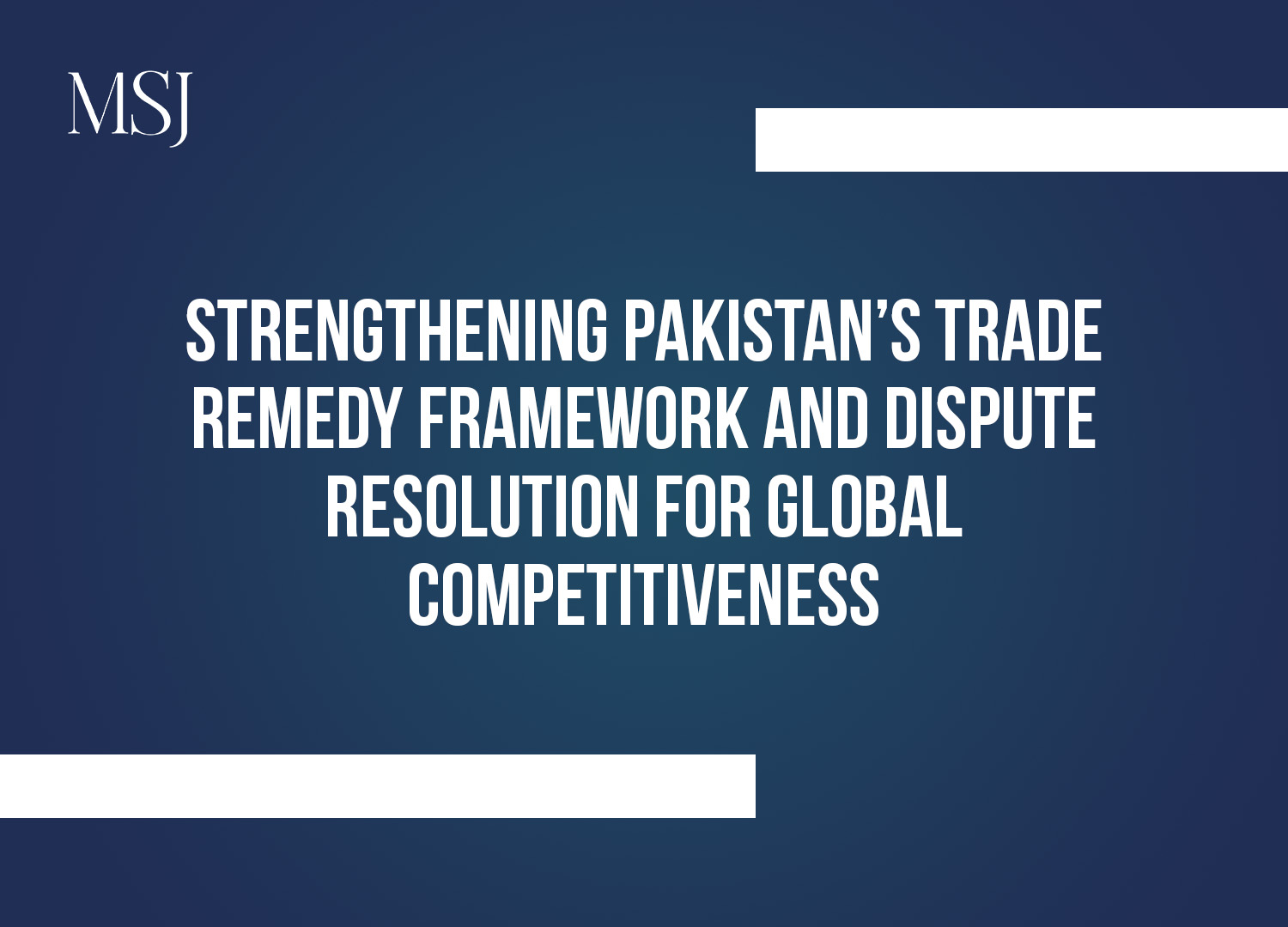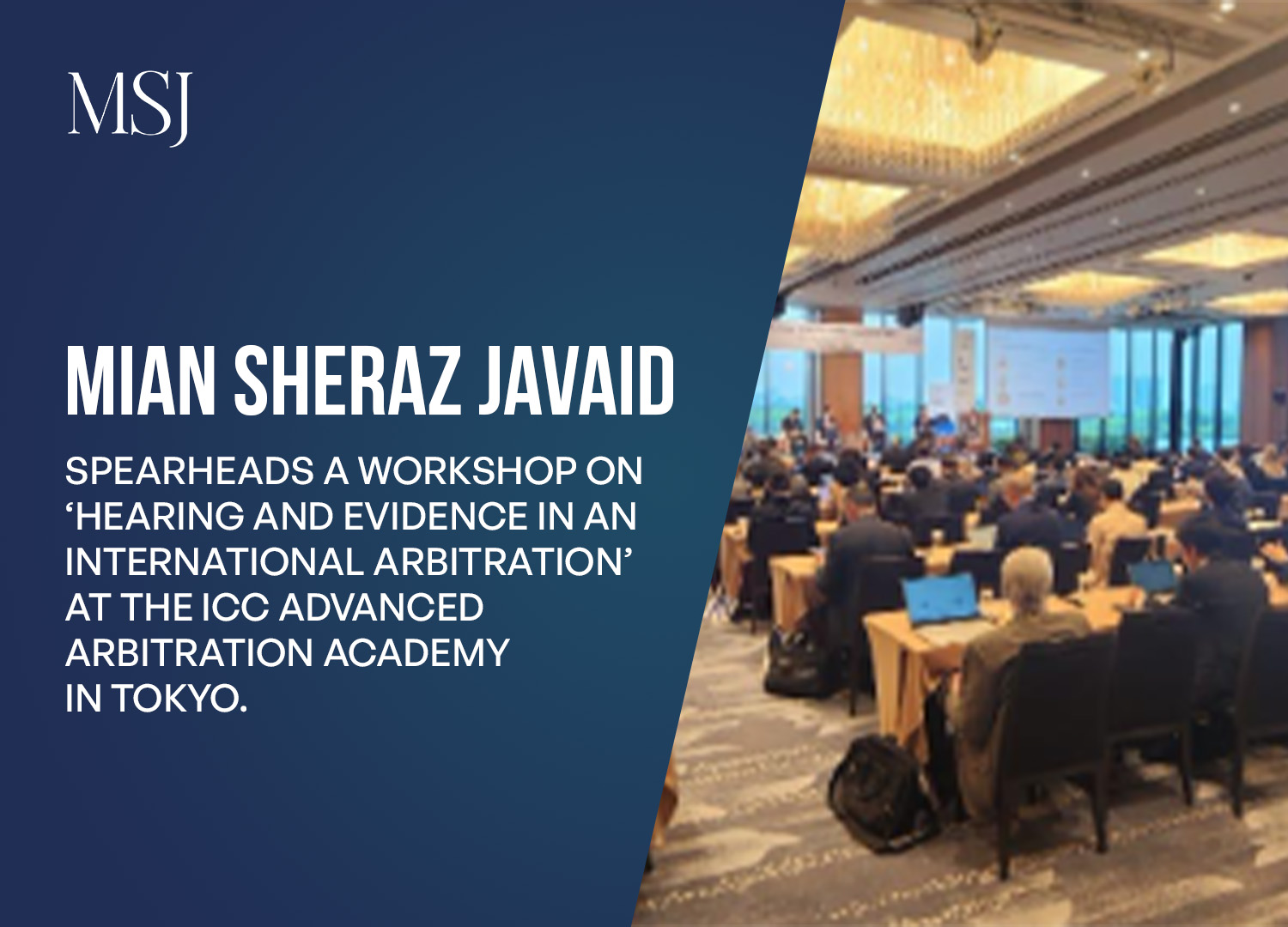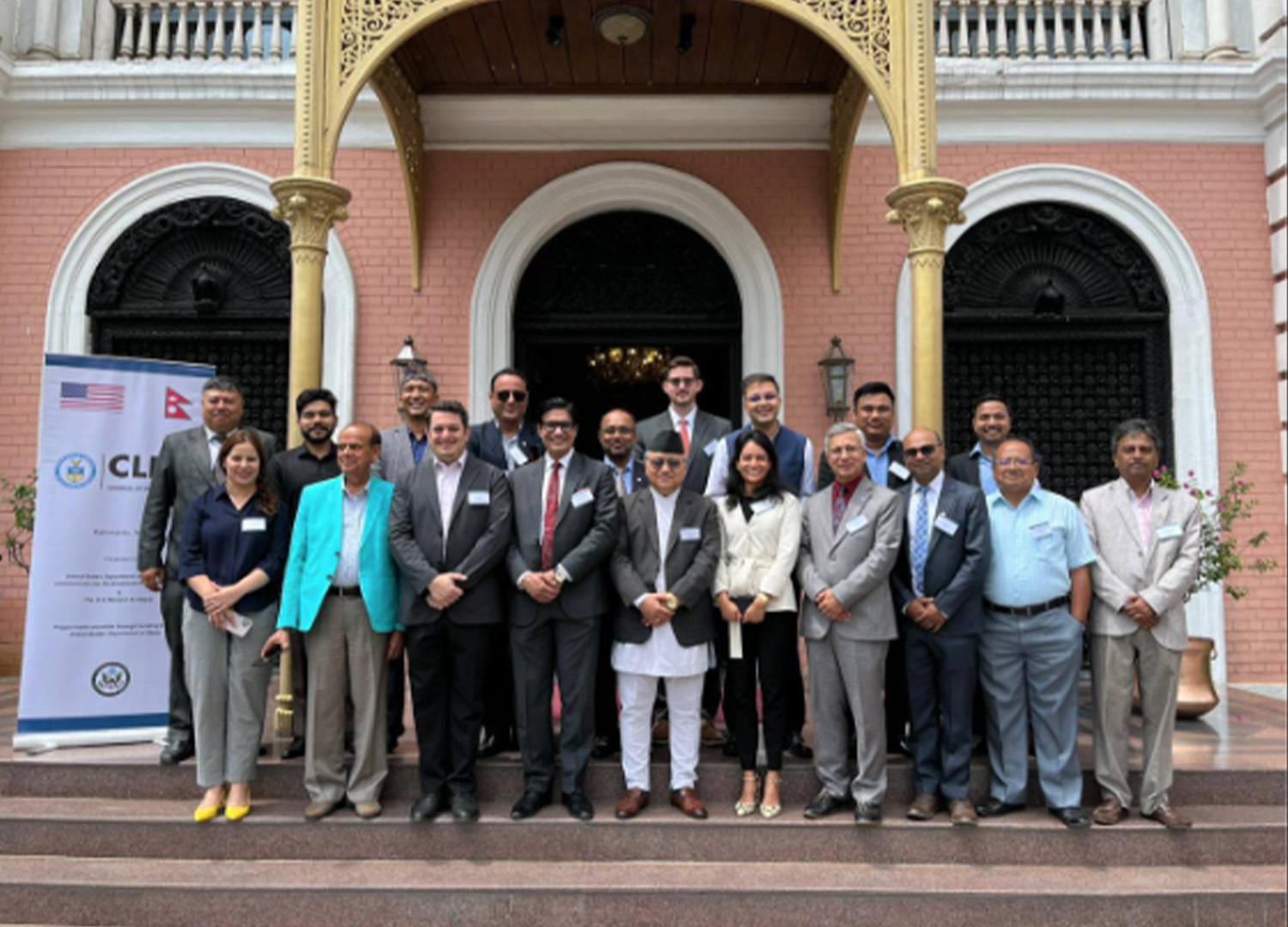Mian Sheraz Javaid Leads Groundbreaking Training Initiative to Strengthen Pakistan’s International Arbitration Capacity
Mian Sheraz Javaid pioneered a transformative training program aimed at equipping Pakistan's legal professionals to face the nuances of international arbitration. Being one of the initiators of the Ciarb Pakistan Branch, Sheraz has spearheaded bringing an internationally recognised Module 1: Law, Practice & Procedure for International Arbitration course to all the legal professionals across the country. The e-learning course has now passed its midpoint, after completing the past week while offering participants all the necessary learning about the typical phases of an international arbitration case.
The course, which covered arbitral tribunal's powers and jurisdiction, pleading duties of the arbitrators, procedural rules, pleadings, evidentiary issues, rules of evidence, the role of an expert witness in arbitration, etc., is very highly appreciated. All have received high praise and are delivered in a very well as practically approached way. Professionals with a background in law from all walks of life have applied for the program, and this is considered an important move to make Pakistan a global hub for rising arbitration in the world with dispute resolution.
Empowering Legal Professionals with International Standards
A significant takeaway from the training program is that it focuses on equipping legal professionals in Pakistan with knowledge aligned with global best practices. In this context of facilitating this training program, lead facilitator Mian Sheraz Javaid has clarified that this training program focuses on empowering local professionals to work effectively on complicated arbitration cases. Rather than merely providing theoretical knowledge, the course transcends that and aims to transfer the practical skills of handling real disputes in actual everyday events.
“The training is designed to give legal professionals a thorough understanding of the key stages in international arbitration,” Sheraz explained during the course’s mid-session update. “From the powers of arbitral tribunals to how evidence is presented and the critical role of expert witnesses, this course is equipping participants with the tools they need to succeed in international dispute resolution.”
The course trains students in the procedural aspects of arbitration, including drafting pleadings, ensuring compliance with procedural duties, and understanding the complex rules surrounding evidence and witness testimony. Sheraz emphasises that these areas must be understood in detail, especially in international arbitration, where cross-border disputes may involve multiple legal systems, languages, and cultures.
Building a Local Pool of Arbitration Experts
Far beyond the direct gains in knowledge, the end objective of the training program is the development of an efficient local resource pool of arbitration experts in Pakistan. As international arbitration becomes more relevant today, especially in commercial and trade disputes all over the world, there is an increasing pressure to have professionals who know not only about arbitration processes but, above all, know the local legal structure.
Pakistan, an increasingly attractive foreign investment destination, needs arbitration professionals who can help it manage disputes properly, according to international standards. In this sense, the need to develop a pool of domestic talent in arbitration calls for strategic emphasis. Mian Sheraz Javaid is in the vanguard of making the vision a reality.
“Our goal is to not only impart knowledge but to create a pool of highly skilled arbitration experts right here in Pakistan,” Sheraz stated. “This local expertise is crucial for positioning Pakistan as a credible and reliable player in international arbitration. By training professionals who are equipped with the right skills, we are strengthening the country’s legal infrastructure and ensuring that we can handle complex, cross-border disputes efficiently.”
It can only be said that the importance of this initiative is immense. In order to increase global trade and investment, the need for effective mechanisms for resolution of disputes arises. International arbitration remains the favourite choice among all for cross-border disputes because it offers neutrality, flexibility, and efficiency in the platform for the resolution of conflict. By ensuring the proper training of Pakistani professionals about these methods, we will definitely put Pakistan at the top of the world map of international arbitration.
Contributing to Pakistan’s Legal and Economic Landscape
The long-term economic benefit for Pakistan would be in terms of the benefits of the training program that will extend beyond the legal sector. The country is better positioned to attract foreign investments that often rely on arbitration as a key component of dispute resolution in cross-border contracts. International investors and multinational companies are more likely to invest in countries that have well-established and trusted arbitration systems.
In this context, the work of Mian Sheraz Javaid and Ciarb Pakistan is playing a vital role in enhancing Pakistan’s global competitiveness. The ability to resolve disputes efficiently and fairly, particularly in industries such as construction, energy, and technology, is a critical factor for foreign investors when choosing where to do business. By strengthening Pakistan’s capacity in international arbitration, Sheraz is contributing to the broader goal of improving the country's legal infrastructure and attracting more international business.
“This initiative is not just about improving legal practices in Pakistan but about investing in the future of the country’s economy,” Sheraz said. “By building up our local pool of arbitration professionals, we are positioning Pakistan to be a trusted partner in global business, which can lead to more foreign investment and economic growth.”
As the country strives to increase its share of global investments, it is important to train arbitration professionals. International arbitration would always be the preferred method for resolving disputes in sectors involving large sums and intricate contractual agreements with foreign organisations, and Pakistan's lawyers need to be ready for this challenge.
Looking Ahead: Expanding the Reach of Ciarb’s Training Programs
The success of the Module 1 course is just the beginning. As the program continues, Mian Sheraz Javaid and Ciarb Pakistan Branch are planning to expand their training offerings to include additional modules and more advanced arbitration topics. There are also plans to increase outreach efforts to bring in more legal professionals from across the country, ensuring that Pakistan’s growing arbitration community remains diverse, inclusive, and equipped to handle future challenges.
“This is an ongoing effort,” said Sheraz. “We are committed to expanding this program, reaching more professionals, and ensuring that Pakistan’s arbitration capacity continues to grow. As international disputes become more complex, the need for skilled, locally trained arbitrators will only increase.”
Within a few years, Sheraz expects Pakistan to be one of the top leaders of the region for international arbitration; the pool of professionals skilled to act as arbitrators will be a key opportunity in this direction. There is huge scope in this sector, and, through solid foundations established at present, Ciarb Pakistan is working toward the preparation of the country for future requirements.
Conclusion
Mian Sheraz Javaid’s leadership in driving Pakistan’s growth as a hub for international arbitration is proving to be a game-changer for the country’s legal and economic landscape. Through the Ciarb Module 1 training program, he is not only equipping legal professionals with the skills needed to handle complex international disputes but also cultivating a local pool of arbitration experts that will enhance Pakistan’s reputation on the global stage. With these efforts, Pakistan is poised to play a pivotal role in the future of international dispute resolution, attracting investment, and strengthening its legal infrastructure for years to come.









